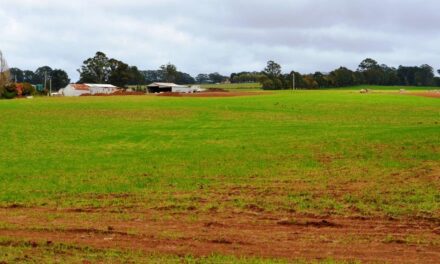by Stan Capp
The recently legislated Local Government Act 2020 requires Councils make sure the community is engaged in important decisions. Councils now have to put in place processes to make sure residents have a genuine say in the decisions that affect them.
In particular, the Act requires that Councils apply their community engagement policy in the development of the following:
- planning and financial management
- community vision
- council plan
- financial plan
- revenue and rating planning
- asset plan
Whether it’s about planning new developments or the removal of geese from Daylesford Lake, residents should be genuinely consulted and have a say. Accurate information and meaningful participation with the community are important to gain support for Council decisions, particularly where community views differ.
Using resident panels for better decisions
One form of community participation that has been used in local government and elsewhere is the creation of Resident Panels or as they are often referred to, Citizen Juries. A Citizen Jury or Resident Panel is a representative group of community members who engage in an independent and systematic process to consider evidence and provide recommendations to government decision making bodies like Council.
There are numerous examples where Resident Panels have been adopted. The Victorian Local Government Association has a neat summary and has a number of informative links available at https://www.vlga.org.au/sites/default/files/v4-Citizen-Juries-an-overview.pdf
In planning and development, councils have special responsibilities and are subject to the legislation and guidelines of the Government of the day.
Council Officers evaluate planning and development applications against the approved planning criteria and make their recommendations to Councillors. Establishing Resident Panels for eliciting advice about designated planning proposals prior to their consideration by Councillors can provide an additional, independent and useful source of advice.
The basis for this is to provide balance to development applications that, although heavily regulated, can be negotiated to achieve better community amenity through dialogue and engagement with community views.
How would resident panels work?
For example, one option that could be pursued is:
- On all development applications likely to significantly impact the amenity of Residents, Hepburn Shire Council convenes a Resident Panel to provide input to Councillors on the proposal.
- While the strict application of planning criteria is relevant, advice from the Resident Panel would balance the decision-making process to be inclusive of the views of the community.
- In order to avoid the “Not in My Backyard” claim, the constitution of the Panel would exclude Residents directly affected by the planning application. Although excluded from membership of the Panel, these Residents are still encouraged to submit their views.
- The Resident Panel would hear the views of Residents and consider their testimony.
- The Resident Panel would also hear the views of the Developer, Architects and other consultants and consider their testimony.
- Expert advice would be sought from the Planning Officers and where deemed appropriate, from other experts such as Urban and Town Planners, independent architects and other relevant advisors.
- The Resident Panel would in a timely way consider all relevant matters and make a report to Councillors of its recommendations.
- The Resident Panel would be chaired by an independent and experienced person and members would be drawn on a case by case basis from a list of persons who reside in Hepburn Shire and have agreed to participate. They would reflect a stratified mix irrespective of ability, background, class, gender and orientation.
- A small Hepburn Shire Council team independent of the Council’s planning team would manage organisation and logistics of the Resident Panel.
Challenging but worth trying
Similar but not identical processes can be established in any area where Councillors would benefit from community input. What is needed is a willingness to receive advice through a formalised structure of eliciting community views. There is now a legislative requirement that they do so.
This will be challenging for both Councillors and Shire executives, but nobody is suggesting that community engagement is easy. However, the outcomes are more likely to reflect community views and be to the overall benefit of the community.
Dr Stan Capp has extensive experience in managing large organisations such as public health services and local government. He has conducted and researched strategies for involving the community in decision making on important issues.




